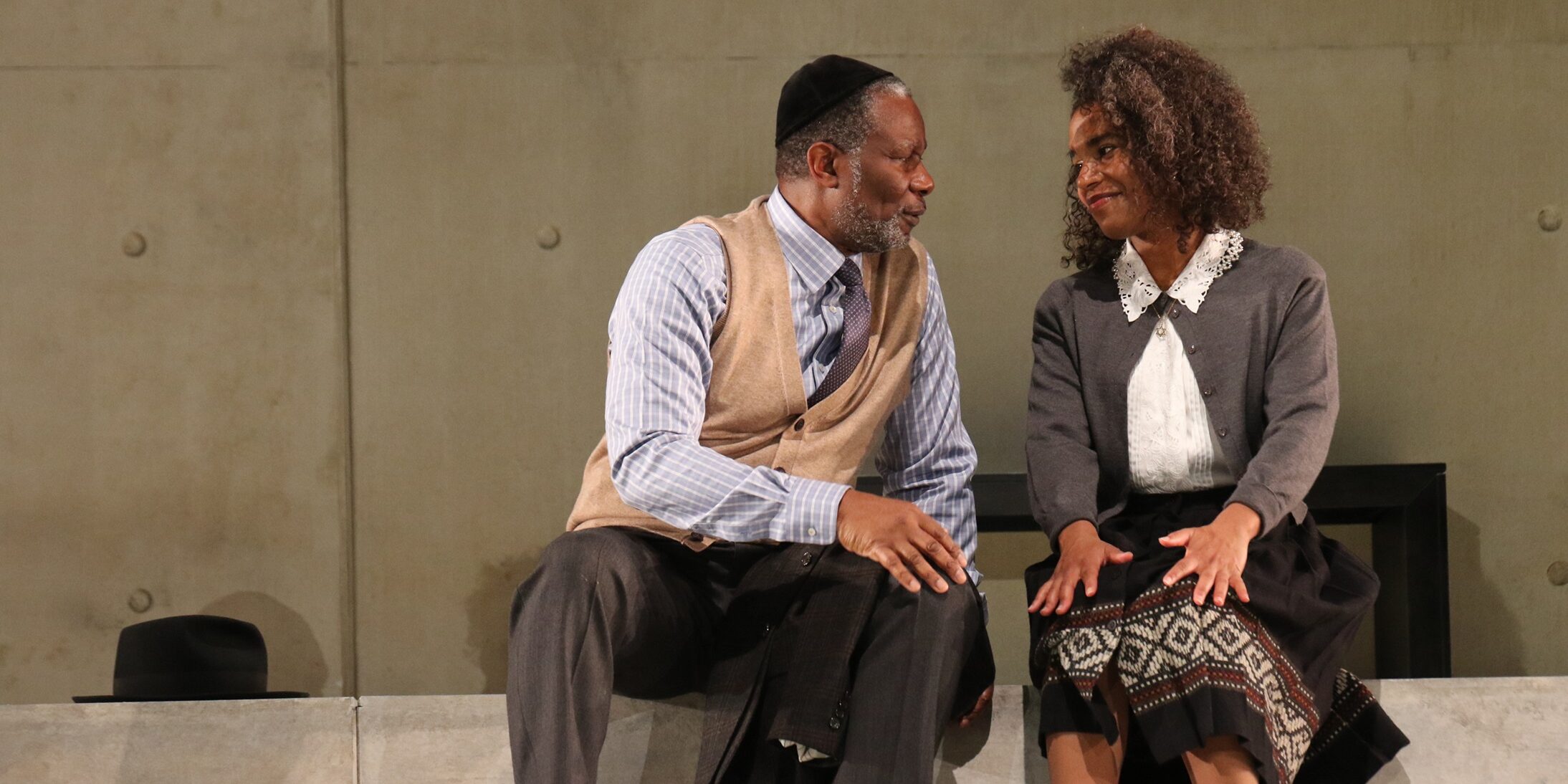Things you will be warned about before watching Theatre For A New Audience’s (TFANA) production of William Shakespeare’s The Merchant of Venice at Edinburgh’s Royal Lyceum: implied sexual violence, discriminatory language, violence, haze effects and vaping. Things you will not be warned about: explicit antisemitism, including but not limited to abuse, spitting, physical violence, ritual humiliation and forced conversion.
Having decided to include a content warning, this offensive omission is typical of a production that does not have a firm grip on the challenging material it presents. An awkward mix of capitalist critique, romantic comedy and antisemitic tragedy, The Merchant of Venice requires careful handling to get right on the modern stage.
Its central antisemitic story of Jewish money lender Shylock’s attempts to revenge himself on Christian merchant Antonio in sixteenth-century Venice is by necessity a shocking and unpleasant watch. To modern eyes it can rub uncomfortably against the jolly crossdressing japes of the romantic sub-plot, albeit both contribute to the play’s further themes of commerce, capital and the commodification of human beings, be they slaves overseas or women at home. Unfortunately, no matter how well-intentioned, TFANA have not successfully married these separate strands, leading to numerous tonally jarring moments.
A lot of thought has clearly gone into what it means to cast a Black man (John Douglas Thompson) as Shylock. Unfortunately, rather less thought seems to have gone into what it means to not cast a Jew. In validating this decision, not enough care has been taken in the handling of the Jewishness and antisemitism that are absolutely fundamental to the play.
As well as the offensive content warning, clumsy comments from director Arin Arbus, author Ishmael Reed and Thompson minimise (however unintentionally) the centrality of specifically Jewishness and antisemitism to the play. In their words, Shylock becomes a mere ‘proxy’ for the other in general, while antisemitism is relegated to being just one of a list of prejudices for the play to examine.
It is telling that Arbus writes ‘by casting a Black man as Shylock…one becomes painfully aware of the connections between Shakespeare’s 16th-century Venice and our world now’, as if we would not be so painfully aware of these connections with a Jew cast as Shylock, regardless of the colour of their skin. Antisemitism remains rife in our world now.
Possibly as a result of this offstage confusion, the production itself is uneven. Thompson is genuinely impressive as Shylock, growing powerfully into the role through the play. His transformation from seemingly avuncular Venetian resident to furious avenger to broken old man is spectacular.
As Shylock’s actions become more reprehensible, Thompson effectively lets us see and feel the internal struggle as Shylock’s desire for revenge battles with his essential decency as a man. His destruction is set against a suitably bleak, brutalist set. Yonatan Gebeyehu and Dave Quay are also impressive, gasp-inducingly vile as Solanio and Salerio, friends of Antonio who heap antisemitic abuse on Shylock.
Unfortunately, too many of the other characters are thinly or clumsily acted. Particularly egregious in a play about antisemitism in particular and xenophobia in general are crude caricatures played for cheap laughs of Africans, Spaniards and queer people.
This production ends with Shylock and his daughter Jessica reciting the Jewish prayer Kol Nidre. It is a deeply sacred and profound declaration, with a complex history (including use against Jews by anti-Semites) that in this context seems ill-judged. The lack of care this production takes in its handling of Jewishness and antisemitism means they do not earn the right to use it.
Performed at The Royal Lyceum Theatre, Edinburgh
Runs until Saturday 15 February, Tuesday-Saturday 19:30, Wednesdays and Saturdays 14:30
Running time: 2 and a half hours, plus interval
Written by William Shakespeare
Directed by Arin Arbus
Designer: Riccardo Hernandez
Sound Designer: Justin Ellington
Lighting Designer: Marcus Doshi
Costume Designer: Emily Rebholz
Cast includes: Isabel Arraiza, Danaya Esperanza, David Lee Huỳnh, Alfredo Narciso, Ariel Shafir, John Douglas Thompson

